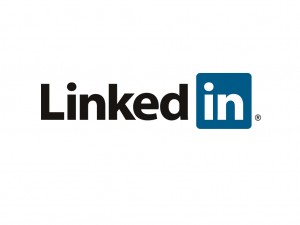More Filipinos developing their online brand

This is probably part of the reason behind the popularity of online communities like Facebook. It’s one of the few places where someone has full control over what other people see.
You can choose to upload only your best-looking photos, post only your wittiest one-liners and jokes, and choose which users get to visit your page.
So if people can meet new lovers and friends through social networking, there’s no reason why someone’s dream job can’t be just one “friend request” away.
In a recent interview, Cliff Rosenberg, Southeast Asia managing director at LinkedIn.com, said developing one’s “online brand” is slowly turning into a necessity for professionals around the world.
“People need to think about this early into their careers,” Rosenberg told Manila-based reporters during a teleconference.
LinkedIn is the world’s largest social network designed especially for professionals. Whereas Facebook and Twitter are designed to help improve one’s social life (or eliminate it completely, depending on how you look at it), Rosenberg said LinkedIn is designed to help one’s career.
A survey by UK-based Eurocom Worldwide from January to February of this year showed that one in every five companies today has added checking an applicant’s Facebook page as part of its screening criteria.
“Very often, we see that people don’t think ahead when it comes to how their social networking profiles appear,” he said. “You have to remember: what goes on the web stays on the web.”
“Teenagers that post embarrassing photos of themselves, they end up regretting it later in their lives because other people see it,” he said.
Rosenberg said jobseekers, in particular, can no longer afford not to maintain professional images online or risk being passed over by companies because of what’s posted on Facebook or Twitter.
“Professionals have to think of themselves as their own chief marketing officers. They need to take control of their careers by having good professional brands,” he said.
On the other side of the fence, Rosenberg said headhunters are also starting to learn that social networking can become a vital tool in finding the best talent in places like the Philippines, where the market is flooded with well-educated professionals, many of whom would rather work abroad.
“Top recruiters know that the best talents are not on the market. They are working and doing well in their current jobs,” he said.
By maintaining a LinkedIn page, Rosenberg said a person can be passive yet still stay on the job market. While a person’s job satisfaction may be high where he currently is, a better opportunity can and often does come around.
LinkedIn now has over 150 million users, with about two more users joining every second, globally.
“LinkedIn’s global reach and scale enable professionals in the Philippines to find and connect with business contacts and showcase their skills to global audiences,” Rosenberg said.
About 25 million of LinkedIn’s base is from Asia-Pacific. About a million are from the Philippines, the social network’s latest data showed.
This makes the Philippines one of the biggest sources of LinkedIn users in Southeast Asia, which has four million users.
LinkedIn has some interesting data on the breakdown of these one million Filipinos on the network.
The most represented sector is the information technology and services industry (read: business process outsourcing).
The next-biggest industry is the education management sector. Rounding out the top three is, strangely enough, the accounting industry.
The company is also able to break it down by corporation.
Technology firm Accenture has the most users in the Philippines on LinkedIn, followed by little-known Palawan Biodiesel Development Corp. and call center Convergys.
Schools too, have their own LinkedIn rankings.
The university with the most LinkedIn users is the University of the Philippines, followed by De La Salle University and Ateneo de Manila University.
“LinkedIn is about connecting the world’s professionals to make them more productive and successful and this significant milestone demonstrates that professionals in the Philippines are interested, and in fact are already seeing significant benefit in building their online brands,” Rosenberg said.